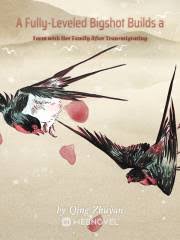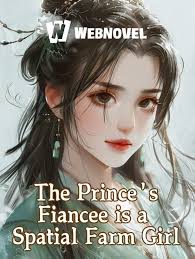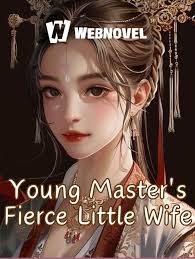The Story in 3 Sentences
Lu Jingzhi, a top-tier powerhouse from an apocalyptic world with mastery over water, wood, and space, transmigrates into a starving girl in a remote valley with nothing but a dilapidated cottage and three mysterious family members.
She soon discovers that her mother Shen Nanwei was once an Imperial Noble Consort, her elder sister Jiang Xiaohua a ruthless modern-day CEO, and her younger self—also named Jiang Xiaomiao in some references—is part of a rare triad of transmigrators, each carrying elite skills from their past lives.
United by blood and ambition, the family transforms their humble homestead into a thriving enterprise through farming, trade, and strategic cunning, defying poverty and societal limits to build a life of comfort, security, and quiet dominance.
Why It Stands Out
1. A Rare All-Female Powerhouse Ensemble
Unlike most transmigration tales fixated on romance or lone-wolf protagonists, this novel centers on a tight-knit matriarchal unit where every woman is a former apex figure in her own right—no damsels, no sidekicks, just layered, capable women rebuilding civilization from scratch with pragmatism and warmth.
2. Farming as a Form of Quiet Revolution
The story redefines the “slice-of-life” xianxia trope by treating agriculture not as backdrop but as active resistance—each chili planted, each jar of jam sealed, each tea shop opened becomes a quiet act of defiance against scarcity, class rigidity, and fate itself.
3. Transmigration Without Amnesia or Helplessness
Lu Jingzhi arrives fully aware, fully powered, and fully impatient—she doesn’t waste chapters rediscovering her strength or begging for scraps. Her arc begins not with survival but with optimization, turning her spatial storage and elemental control into engines of economic and social uplift for her entire household.
Characters That Leave a Mark
There’s Shen Nanwei – once an Imperial Noble Consort in a bygone dynasty, now a “salted fish” recluse whose quiet demeanor masks deep political intuition and unspoken trauma, yet she chooses peace over power in this new life, tending herbs and offering cryptic wisdom that steers the family through crises.
You’ll meet Jiang Xiaohua, who carried the cutthroat instincts of a modern corporate CEO into this agrarian world; her strategic mind turns cottage industries into monopolies, and her ability to read people makes her the family’s silent diplomat, negotiating with merchants and officials alike without ever raising her voice.
And Lu Jingzhi? They’re the one who wields tri-elemental apocalypse-era powers—water for irrigation and defense, wood for instant crops, space for infinite storage—and channels them not into conquest, but into ensuring her family never goes hungry again, blending ruthlessness with fierce protectiveness.
The Flaws Fans Debate
Some readers note the pacing drags in mid-sections where daily farming routines overshadow narrative momentum, making chapters feel repetitive despite the cozy aesthetic.
The romance tag is misleading—the story contains minimal romantic development, which frustrates readers expecting interpersonal drama beyond familial bonds.
A few critics argue that the antagonists lack depth, often serving as generic obstacles rather than fully realized threats, reducing tension in later arcs.
Must-Experience Arcs
Ch. 1–20: The Starving Cottage – Lu Jingzhi awakens in a famine-stricken valley, assesses her powers, and initiates the family’s first survival projects: purifying water, sprouting vegetables overnight, and bartering surplus for tools, establishing the core dynamic of competence meeting compassion.
Ch. 120–150: The Tea House Gambit – Jiang Xiaohua leverages her business acumen to open a roadside tea store using Lu Jingzhi’s rare herbs and preserved fruits; this arc introduces regional politics, class prejudice, and the first major test of their economic independence.
Ch. 380–421: The Imperial Echo – Shen Nanwei’s past resurfaces when remnants of the old court recognize her, forcing the family to navigate palace intrigue without losing their hard-won autonomy; Lu Jingzhi’s spatial abilities become key to outmaneuvering spies and securing their legacy.
Killer Quotes
“Power isn’t for ruling others—it’s for making sure your family never has to beg again.”
“Plant one chili today, and tomorrow the whole valley will taste your fire.”
“If the world gives you a thatched roof, build a villa beneath it.”
Cultural Impact
The novel sparked a micro-trend in web fiction circles dubbed “matriarch-core,” inspiring fan art of the three women around a steaming hot pot in their valley villa.
Readers frequently quote the “salted fish mom” trope online, using Shen Nanwei as shorthand for effortlessly wise, low-effort-but-high-impact maternal figures.
Despite being MTL-translated, it maintains a 3.9+ rating across platforms with consistent praise for its “anti-harem, pro-family” ethos in a genre saturated with romantic subplots.
Final Verdict
Start Here If You Want:
A refreshing break from romance-heavy transmigration tropes with a focus on female solidarity and practical world-building.
Cozy progression fantasy where every jar of jam feels like a victory.
A protagonist who’s already OP but uses her power to feed, not fight—unless absolutely necessary.
Study If You Love:
Narratives that reframe domestic labor as strategic and heroic within xianxia frameworks.
Multi-generational female dynamics where each woman’s past informs but doesn’t imprison her present.
Economic world-building in fantasy—how trade, agriculture, and reputation function as real power systems.
Avoid If You Prefer:
Fast-paced action or martial cultivation tournaments as primary plot drivers.
Central romantic arcs or love triangles.
Stories where the protagonist starts weak and spends dozens of chapters grinding for basic competence.





